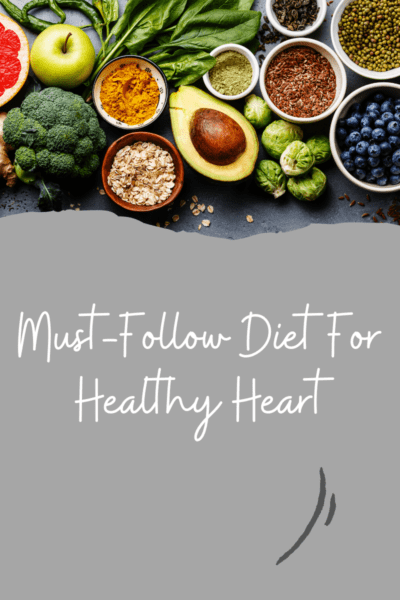Must-Follow Diet For Healthy Heart

A healthy heart is key to preventing and managing all cardiovascular diseases, which highly depends on a balanced diet along with the lifestyle. Changing your eating habits can be difficult, especially when you have years of unhealthy eating.
A balanced diet is not just about what to eat; it is also about how much to eat and how to burn your extra calories intake. Making simple changes in lifestyle and eating habits, such as incorporating essential nutrients like NMN, can create a lot of difference.
Add more vegetables and fruits to your diet
Vegetables and fruits or any other plant-based food are a significant source of vitamins and minerals. These food items are rich in dietary fiber, low in calories, and help in preventing cardiovascular diseases.
Adding fresh or frozen vegetables and fruits to your diet along with excluding high-calorie food like meat, cheese, and fried snacks can be a great addition to your heart health.
Drink wine in a moderate amount
This might sound strange, but adding wine to your diet in moderation can be great for a healthy heart. There are antioxidants called polyphenols present in red wine, which help in protecting the lining of blood vessels in your heart. You can get a monthly wine subscription, to get your hands at some quality wines.
There is a substance called resveratrol which is also found in red wine which helps in preventing damages to the blood cells and blood clots. It also helps in reducing low-density lipoprotein cholesterol or bad cholesterol, which can be one of the primary reasons for cardiovascular issues.
Add whole-grain food options to your diet
Whole grains help in regulating blood pressure and are substantial sources of fibers and other minerals. You can substitute whole grains like farro, quinoa, barley, brown rice, and buckwheat with refined grain products. You can add food items like whole-wheat bread, high-fiber cereals, whole-grain pasta, and oatmeal to your diet chart rather than eating white bread, muffins, biscuits, cakes, and high-fat snack crackers.
Low-fat protein sources
Low-fat dairy products, eggs, fish such as salmon, skinless poultry, soybeans or soy products, lean ground meat, and legumes such as peas and lentils are some of the best sources of protein.
These sources of protein are rich in Omega-3 fatty acid heart which helps in regulating the blood fat and contains no cholesterol, which makes them great substitutes for meat. Other sources of protein include flaxseed, walnut, and canola oil.
Reduce the salt (sodium) intake
Limiting salt intake is another important aspect of a healthy heart diet because too much salt or sodium intake can lead to high blood pressure, which is a heart condition.
You can choose to use herbs, spices, or other salt-free seasoning blends to add flavors to your food rather than using table salt. You can prepare meals or eat canned food that has no salt or reduced salt and can choose reduced-salt versions of food products.
Conclusion
Heart health is something that is the prior area of concern for any individual, no matter what age group they belong to. Therefore, focus on your heart health, create daily menus which have a balance of all the mentioned food items. Exercise or indulge in some sort of physical activity at least 5 times a week. And allow yourself an occasional treat sometimes. A small bag of potato chips or a candy bar won’t derail your healthy eating plan.









